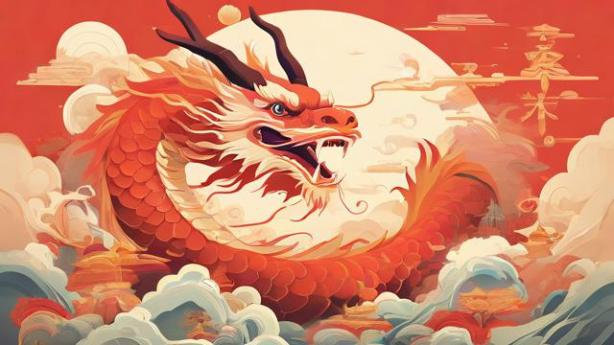
The Longtaitou Festival, meaning “Dragon Lifts His Head,” is a traditional Chinese festival celebrated on the second day of the second lunar month. Also called the “Er Yue Er Festival” (February 2nd), it marks the awakening of the dragon, a symbol of power and good fortune in Chinese culture. According to legend, Chinese dragons control rain and clouds, so people believe this day brings spring rains to nourish crops.
Food also plays a special role. What people eat on the Dragon Heads-Raising Day is usually renamed after parts of the dragon. Eating dumplings is called eating “dragon’s ears”; spring pancakes are called “dragon’s scales (鳞)”; rice is called “dragon’s son”; wontons are “dragon’s eyes”; pancakes are “dragon scale bing”; noodles are “dragon beard noodles”; and fried dough twists are “dragon’s bones”. These show people’s hope to be blessed with favorable weather and good grain harvest by the dragon.
1.1. When is the Longtaitou Festival celebrated?
A On February 2nd of the Gregorian calendar (公历).
B On the second day of the second lunar month.
C At the beginning of spring in March.
D During the first week of the lunar year.
解析:选B。细节理解题:文章第一段明确提到“The Longtaitou Festival...is a traditional Chinese festival celebrated on the second day of the second lunar month.”选项B符合原文。选项A混淆了农历和公历,C和D在文中未提及。故选 B。
2.2.Why do people avoid haircuts during the first lunar month?
A To save money for the festival.
B Because barbershops are closed.
C To wait for better hairstyles in spring.
D Due to a belief that it brings bad luck to uncles.
解析:选D。细节理解题:第二段的“Cutting hair in this month brings bad luck to uncles.”指出,旧习俗认为,正月里剪头发会给舅舅带来霉运,选项D正确。其他选项在文中未提及。故选D。
3.3.Why do some foods get new names after parts of the dragon during the festival?
A To make meals more creative.
B To attract tourists with unique names.
C To honor the dragon’s power over agriculture.
D Because dragon-shaped dishes are easier to cook.
解析:选C。推理判断题:文章提到食物以龙的部位命名是为了“be blessed with favorable weather and good grain harvest”,暗示祈求农业丰收,与龙的掌控雨云能力相关。选项C正确,A和B未提及,D不符合逻辑。故选 C。
4.4.What does the “Daughters’ Day” custom reflect about traditional rural life?
A Daughters were not allowed to work in cities.
B Parents preferred sons over daughters.
C Family bonds and farming were highly valued.
D Married women had no freedom to visit parents.
解析:选C。推理判断题:文中的“On this day, married daughters come home and stay for some days to accompany their parents. Later, they return to help with crop planting.”提到,已婚女儿回娘家陪伴自己父母几天后,返回婆家帮助播种庄稼,既体现家庭纽带(陪伴父母)又涉及农业劳动(种庄稼),选项C正确。A、B、D均与原文矛盾或无依据。故选C。